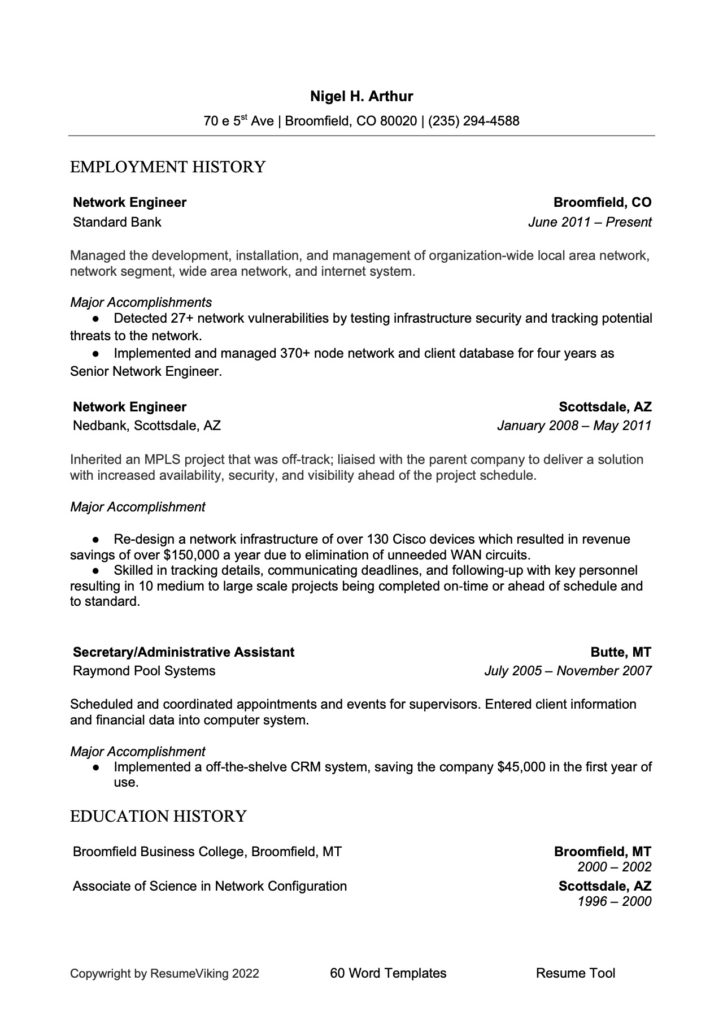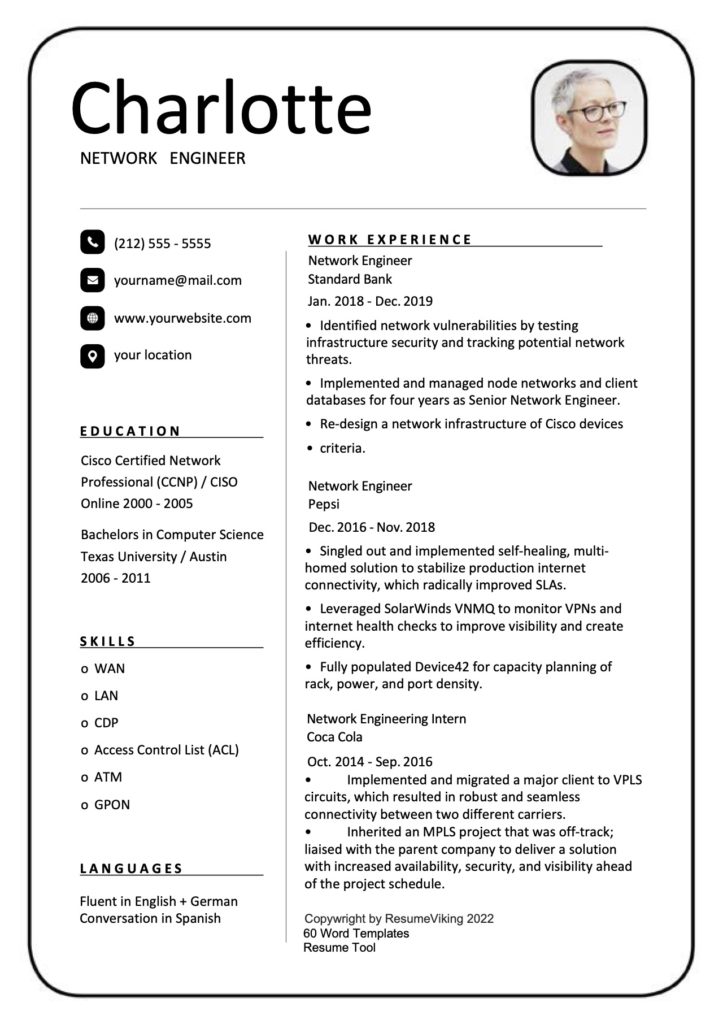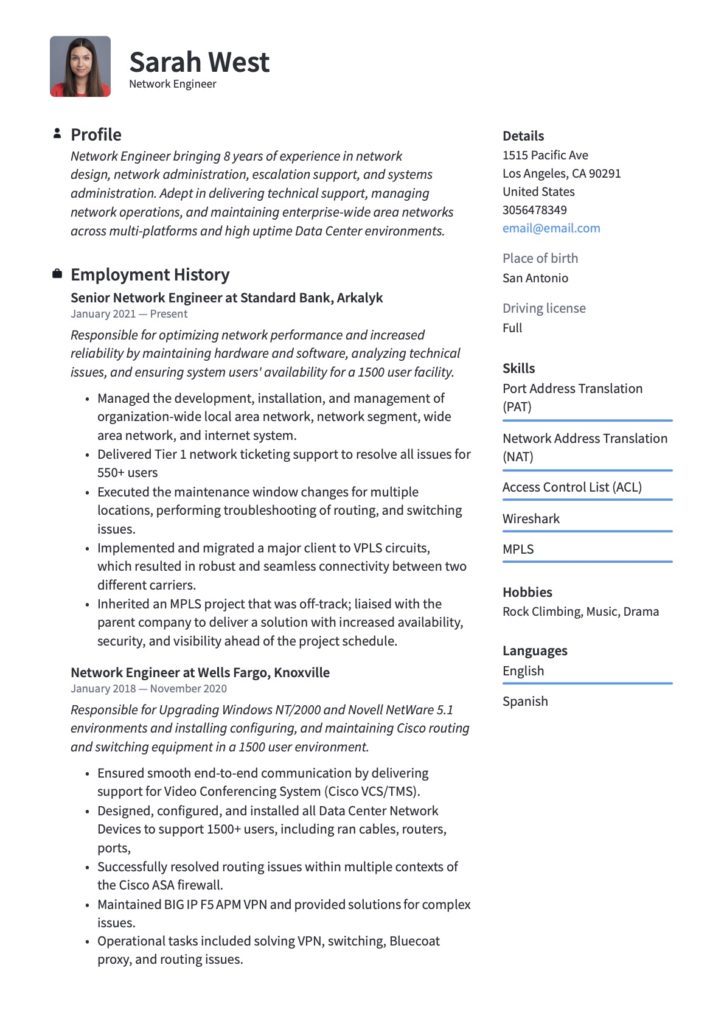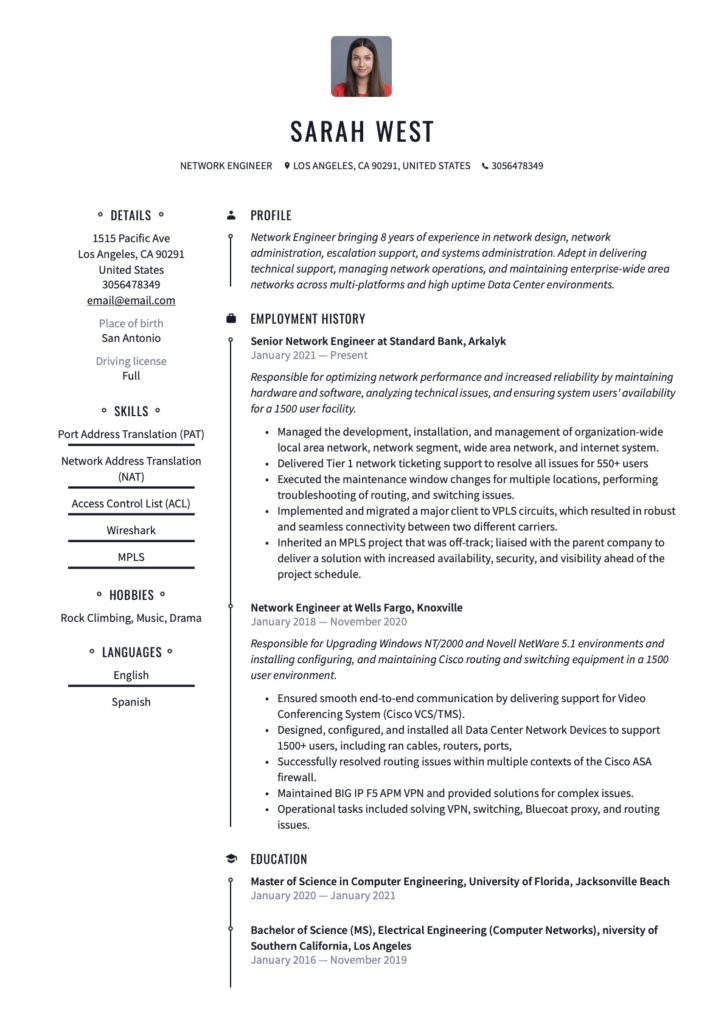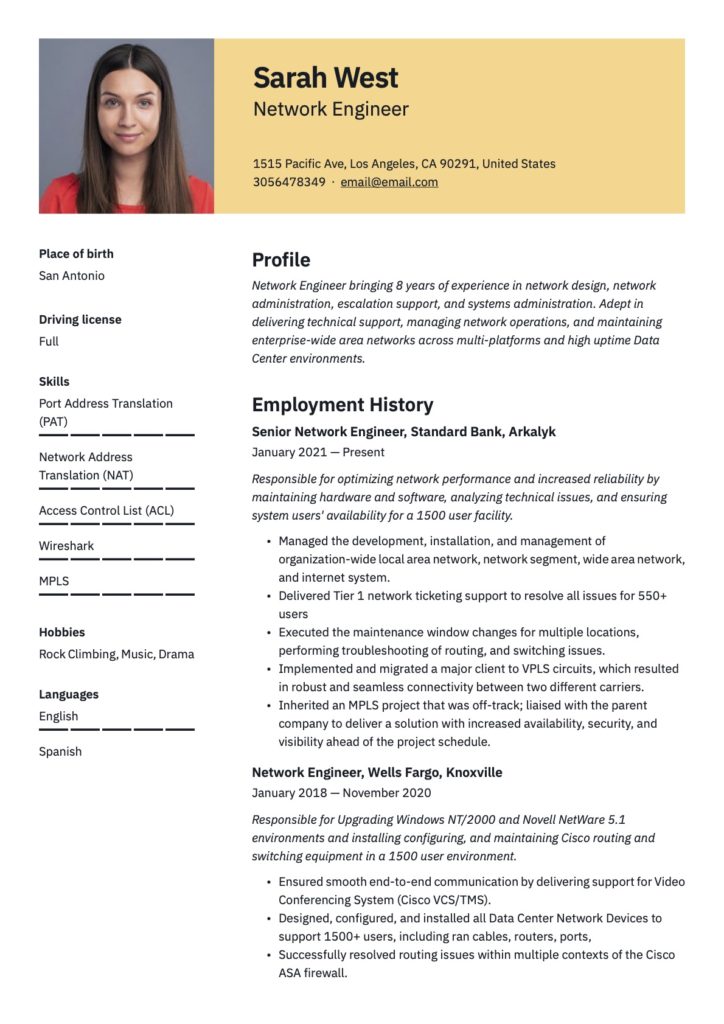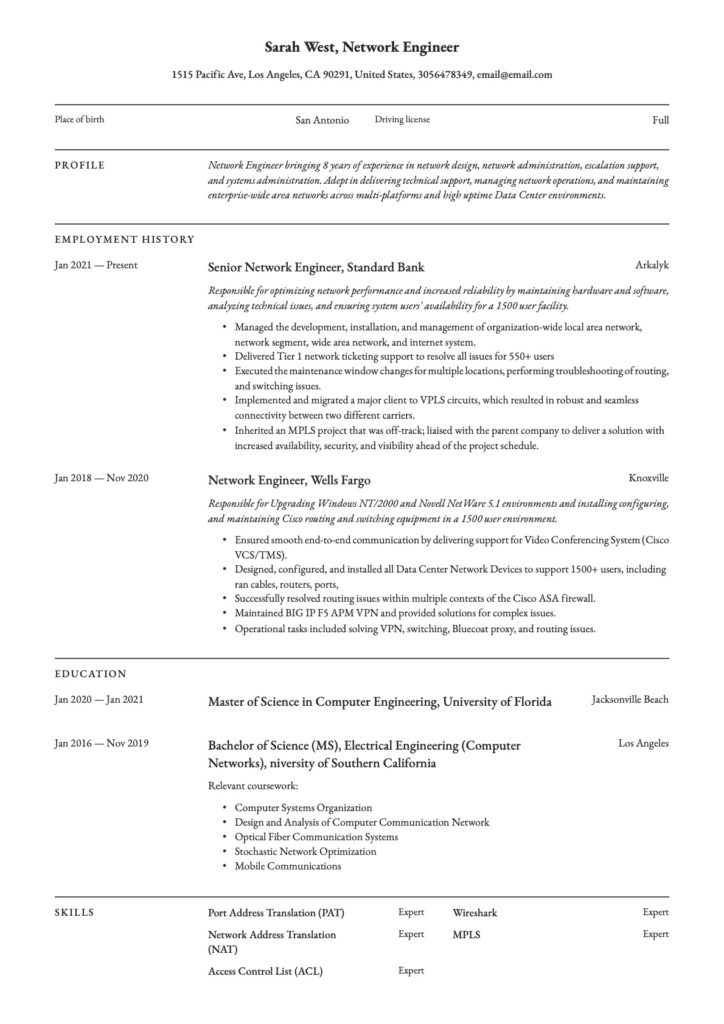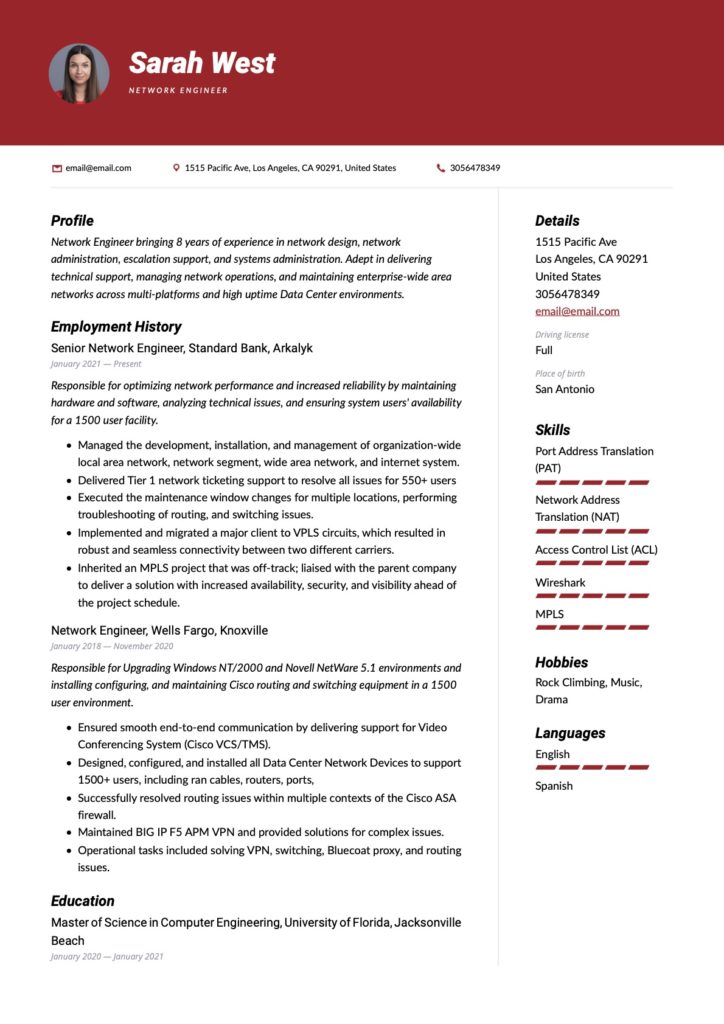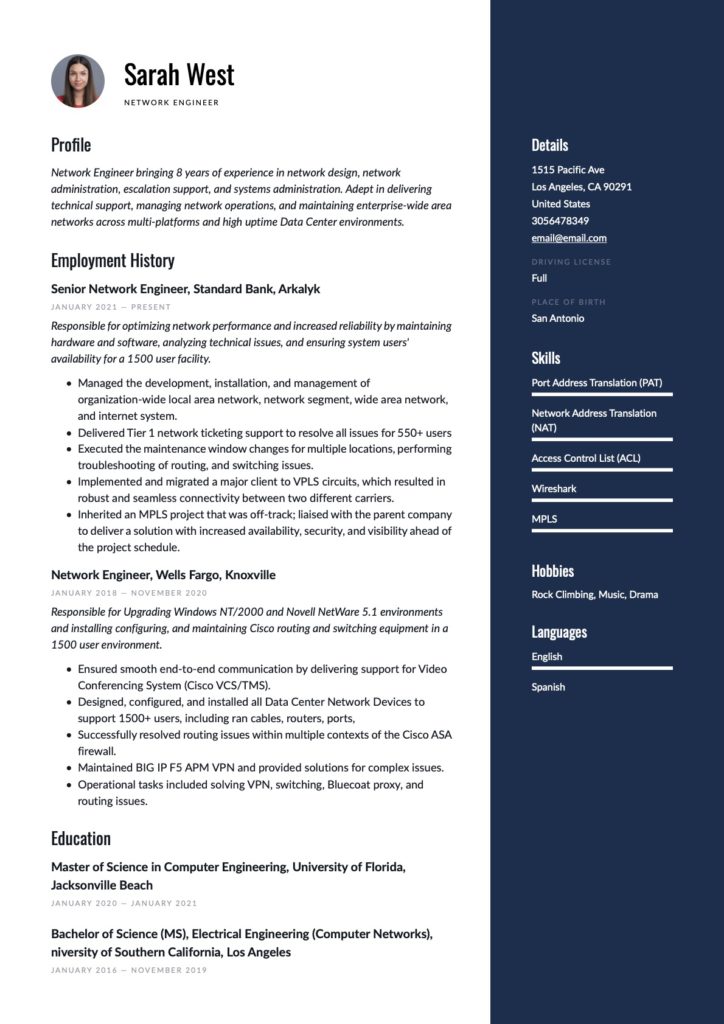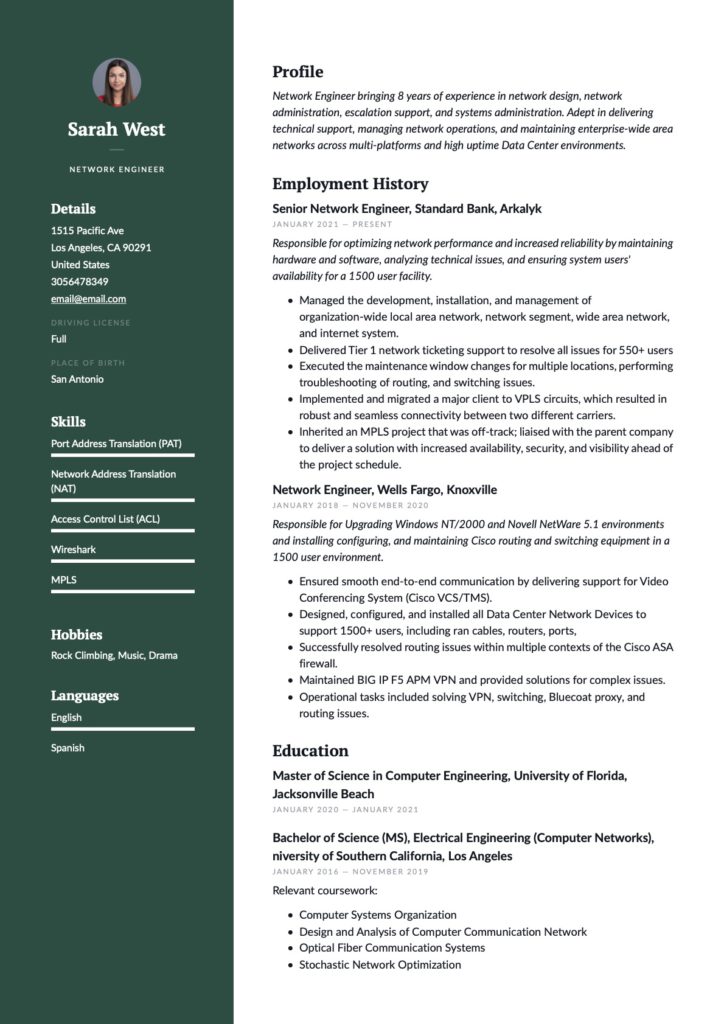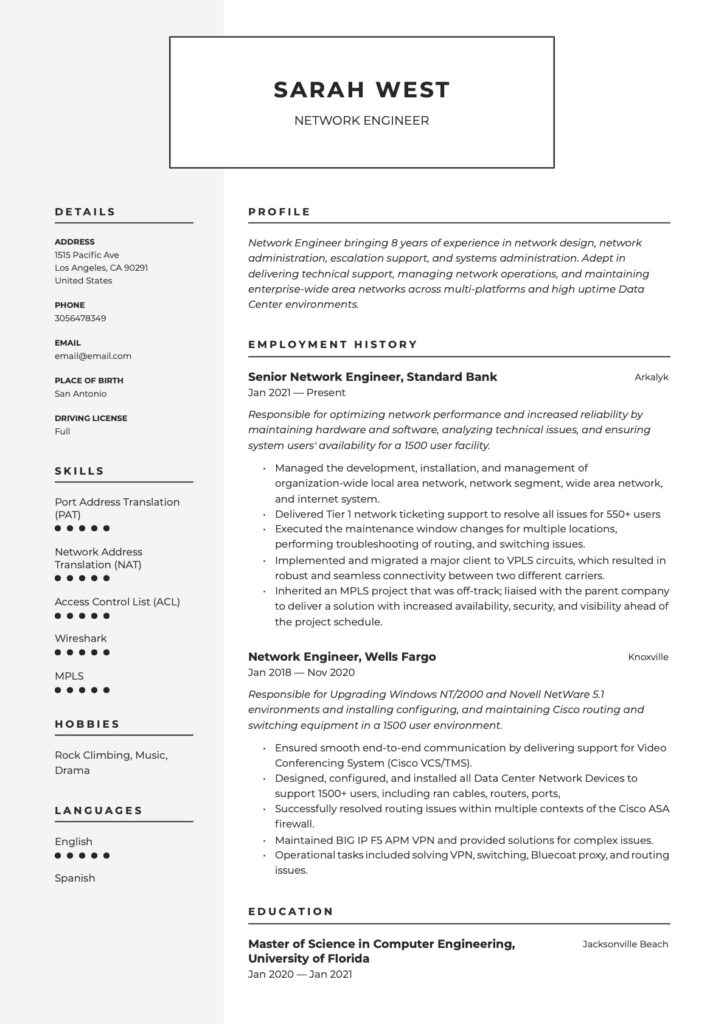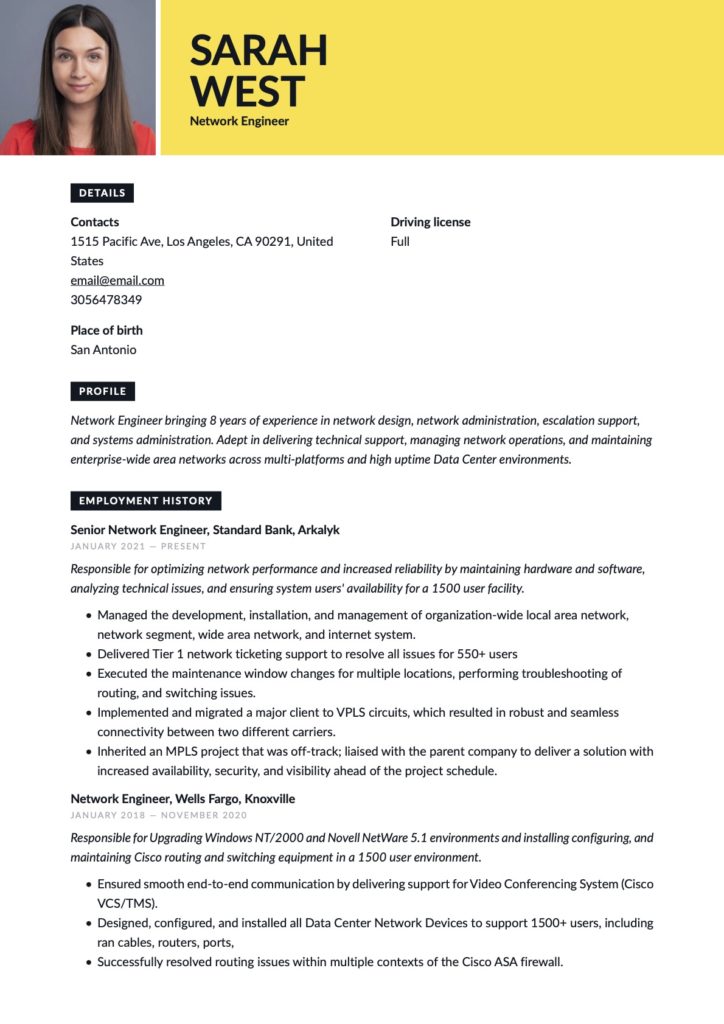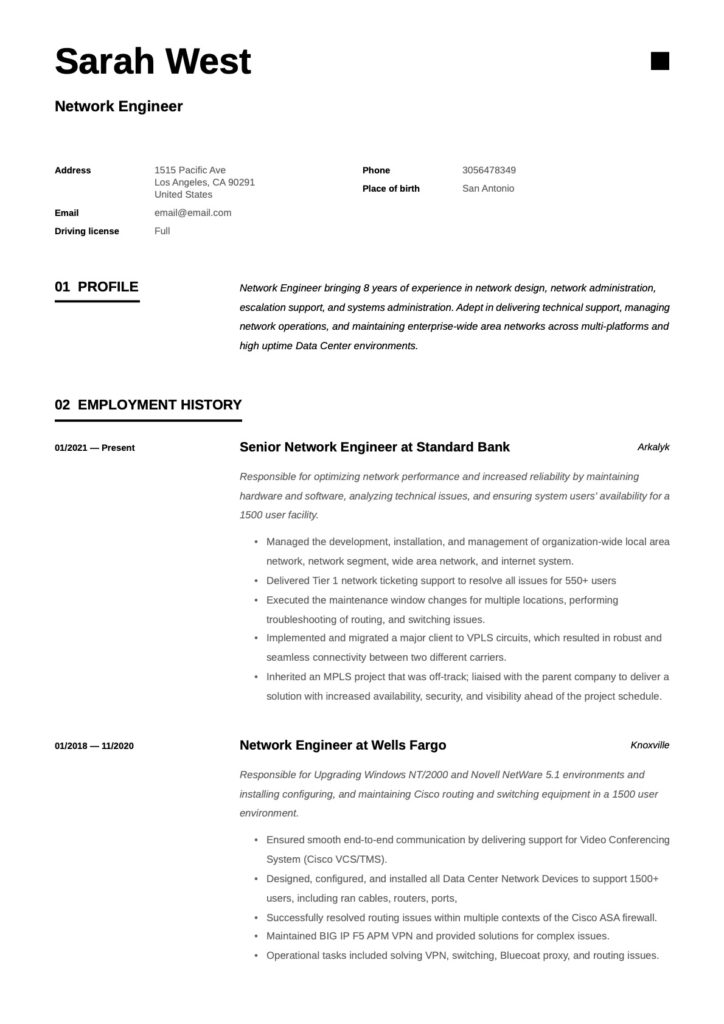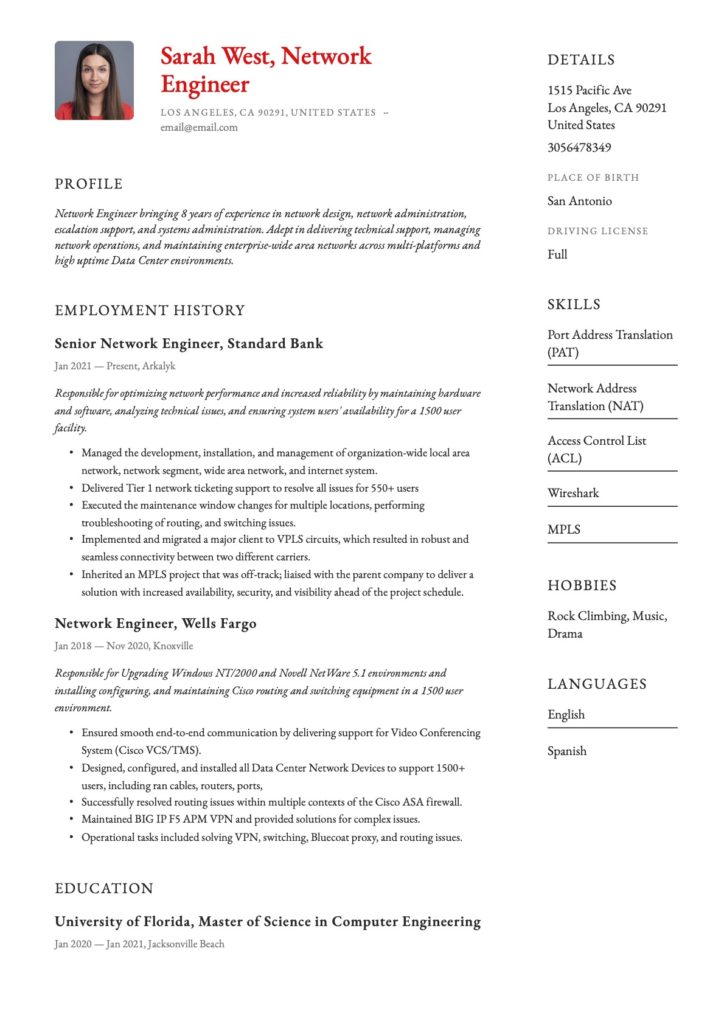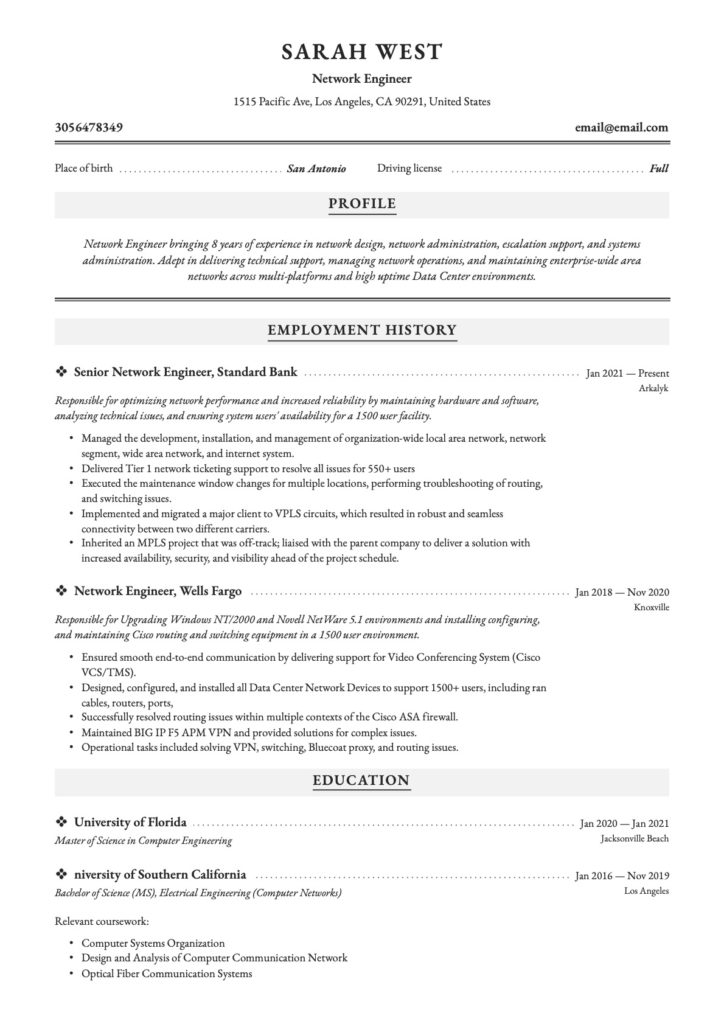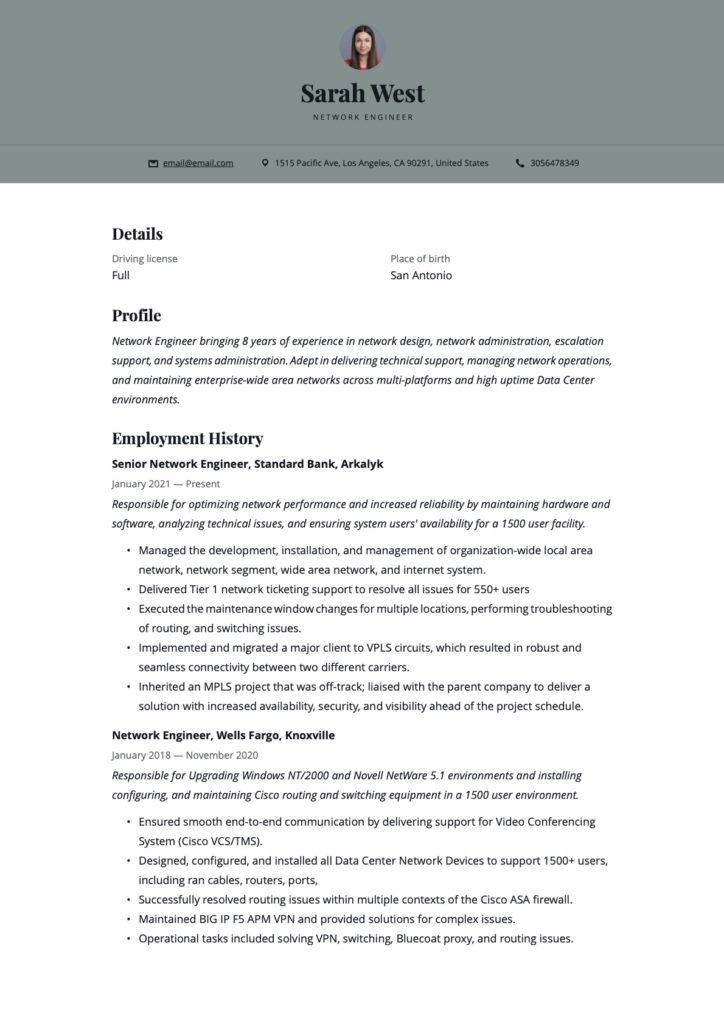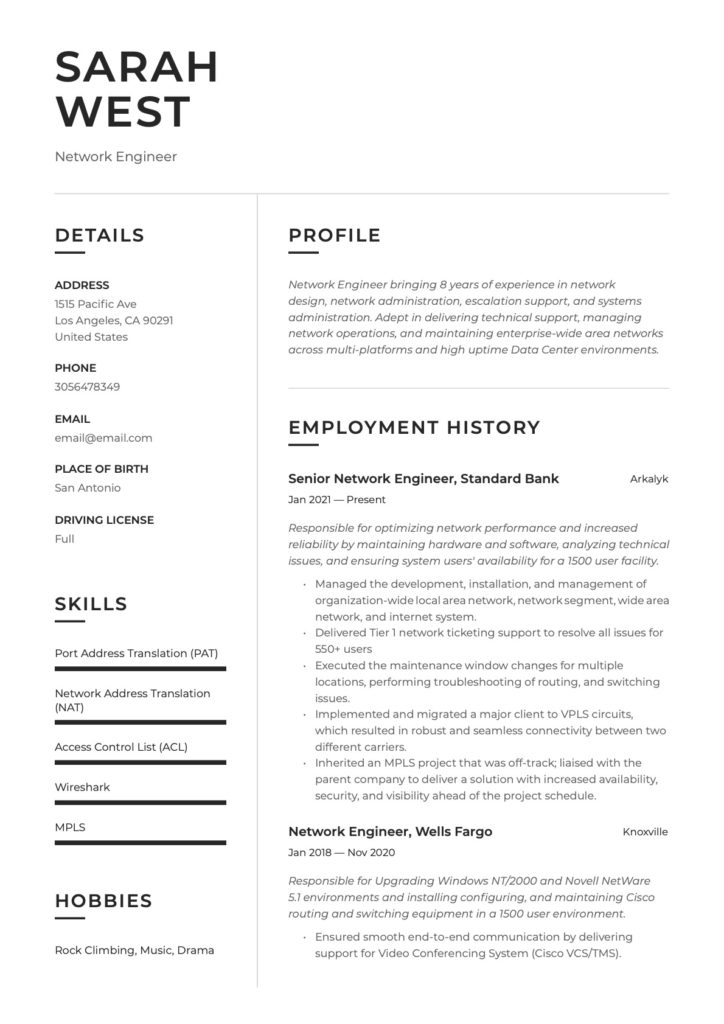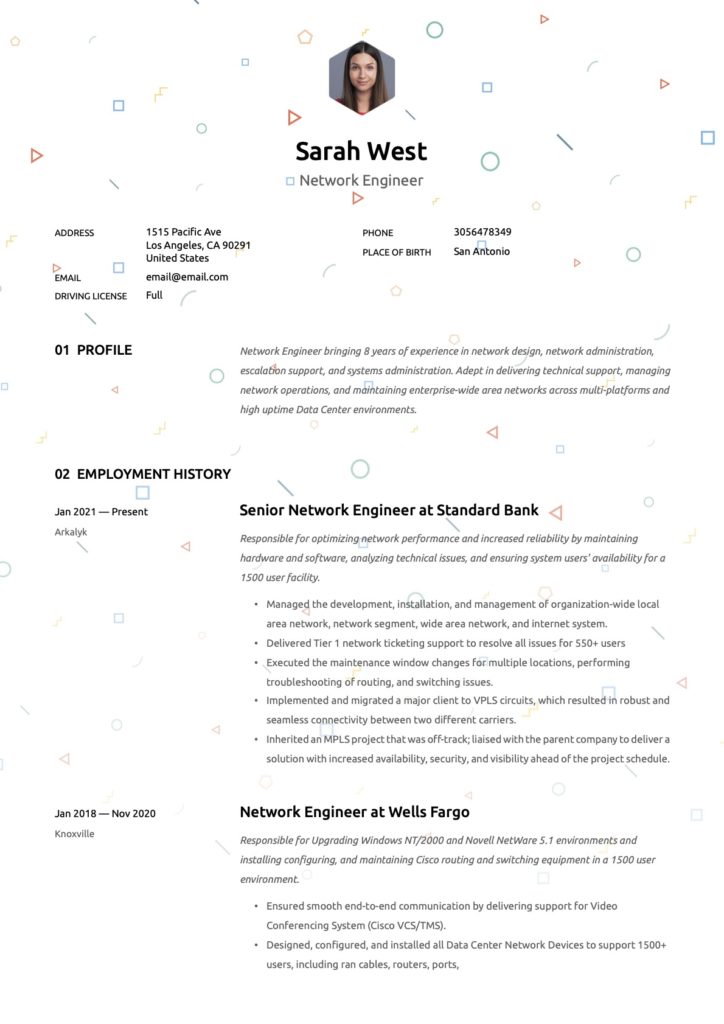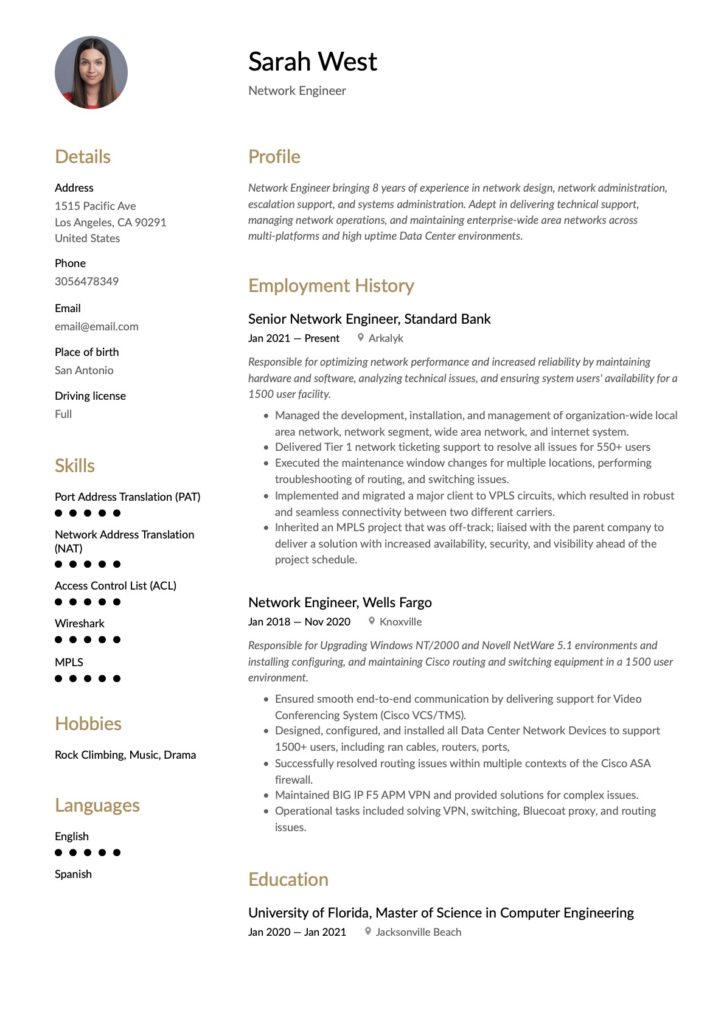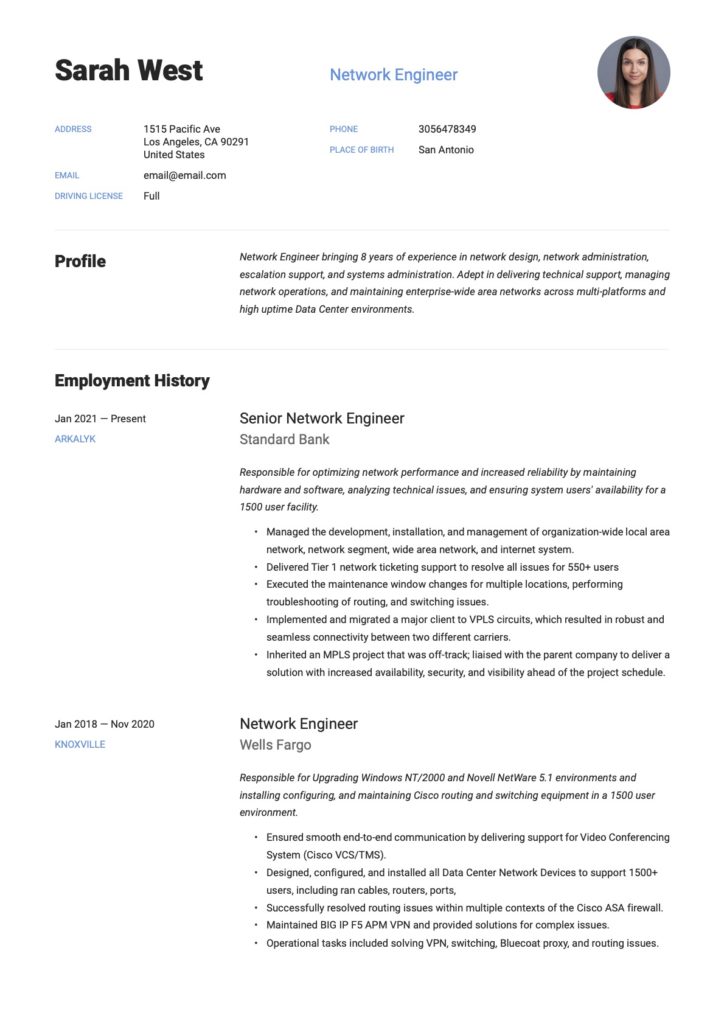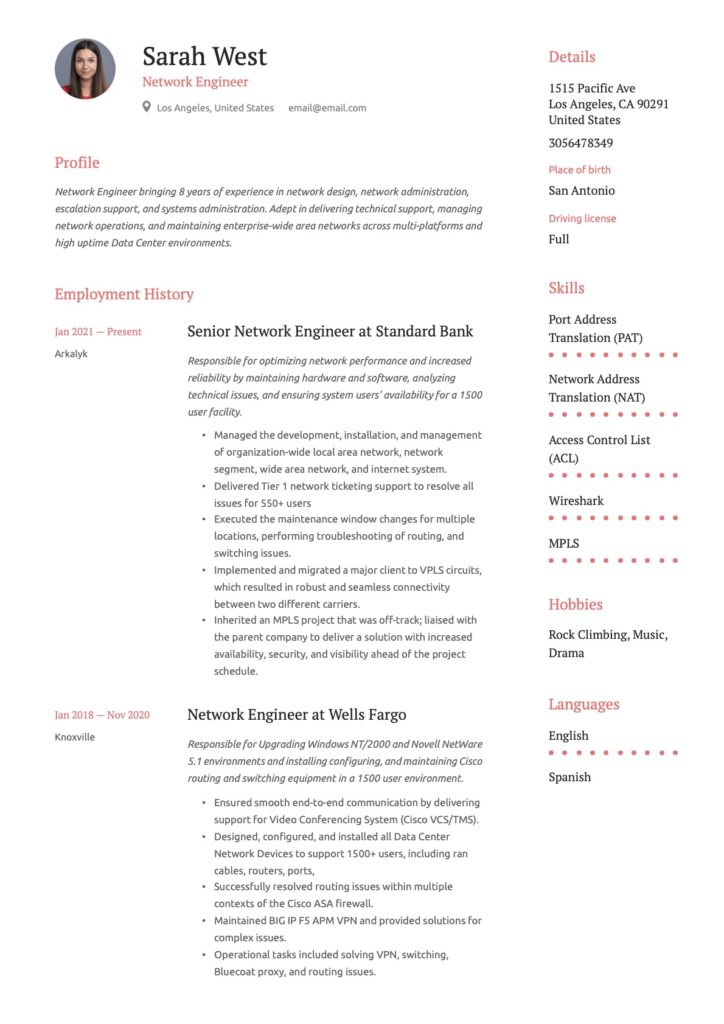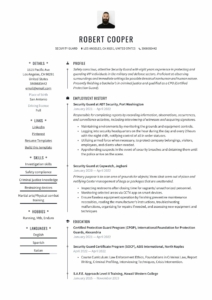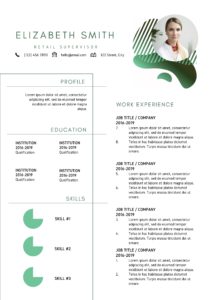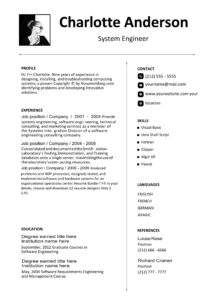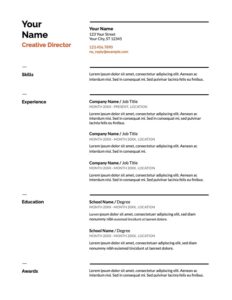Our Network Engineer Resume samples will help you create a resume that will capture the reader’s attention and give you the best chance at landing an interview. You may think this is a difficult task, but we will show you it is not through our: Resume Guidelines for Network Engineer Roles.
What you can read in this article
Network Engineer Resume Examples
(Free sample downloads are at the bottom of this page)
Network Engineer Resume Writing Guide
What to Highlight in your Resume
Network Engineers spend a considerable amount of time gaining the right technical skills, and now is the time to show them off to capture your potential employer's attention. Further, your resume needs to be more specialized towards the specific skill set Network Engineering should have. If you do not include this information, there is a real chance that your resume will be overlooked. Although your work experience is vitally important, there are certain skills and qualities you need to include:
- Any career that involves a Network Engineer is technologically based, and you must include a detailed list of the specific technical skills you can offer. You have to include the names of platforms, programming languages, and programs you have experienced. Your goal is to use your skills to prove you are the perfect person for the job. Besides, many technologically orientated jobs require the ability to work in a team environment. Therefore, you need to ensure your skills showcase your ability to work well with others and be a leader when needed.
- Keep a strong focus on your Engineering field goals and incorporate parts of your background to illustrate them. A goal statement is one of the clearest indicators, to a prospective employer, whether you are likely to be a good fit or not. Include examples such as technical certifications, hardware, operating systems, programming/languages, networking/protocols, web applications, and database applications
Hiring managers go beyond simple observations, and these are a few of the areas that they think about when reviewing your resume:
- Does the resume reflect that you have increased your knowledge over your years of work experience?
- Whether the technical aptitude listed in your resume was a part of your resume experience?
- Did you properly leverage your knowledge and skills in improving processes and mentoring others?
Finally, remember to include your proof of work. Listing specific projects in your resume experience and displaying equipment familiarity builds the hiring manager’s confidence in you and increases your chances of landing an interview.
Summary & Objectives
A Network Engineer’s resume has certain sections that can be generic and used for every application. However, the Career Summary/Career Objective and Job Duties section should always be original. Rewriting them for every resume may sound tedious, but, it will allow you to stand out from other applicants.
The first aspect a potential employer looks for is whether you have the basic skills needed to handle Network Engineering work. The best way to impress them from the start is by opening your application with a well-written Network Engineer resume summary. Your resume summary should be inserted at the top of your resume and must provide a concise, digestible overview of your most valuable skills as a Network Engineer. Employers love this, as it allows them to see the information they are looking for straight of the bat. When writing your resume summary, list some of your most relevant technical skills and include an example or two of your most meaningful professional achievements.
Network Engineer resume objectives bring your skills to the foreground and show the recruiter why you are the perfect candidate. Resume objectives work best for applicants with limited professional experience.
Three Network Engineer Career Objective Examples:
Summary Example 1
“Network Engineer bringing 8 years of experience in network design, network administration, escalation support, and systems administration. Adept in delivering technical support, managing network operations, and maintaining enterprise-wide area networks across multi-platforms and high uptime Data Center environments.”
Summary Example 2
“Driven network engineer with 5 years tenure implementing on-point network solutions with a wide range of technical hardware and security skills. Able to leverage performance analysis experience to build higher quality network designs.”
Summary Example 3
“Hard-working Network Engineer skilled at overseeing complex company networks with a focus on efficiency and performance. Detail-oriented and proactive with strong troubleshooting, communication, training, and analytical abilities.”
Summary Example 4
Skilled and well-organized USC graduate (GPA 3.8) with an MS in Electrical Engineering (Computer Networks). Eager to join Wintermute Corporation as a Junior Network Engineer to help establish and maintain top-quality network performance. Gained experience during a 3-month internship at SAIC configuring switches and developed a good understanding of the Nexus Operating System (NX-OS).”
The Employment History
Network Engineers are involved in organizing the collection, processing, and storage of data. With extensive knowledge of databases and their structures, Network Engineers prepare data to create workable data pipelines that provide valuable insights. The purpose of a Network Engineer’s employment history is to show the hiring manager that you have the skills and experience to transform data into a usable product that informs and improves business decisions.
Examples:
Senior Network Engineer at Standard Bank
February 2019 – December 2022
- Managed the development, installation, and management of organization-wide local area network, network segment, wide area network, and internet system.
- Optimized network performance and increased reliability by maintaining hardware and software, analyzing technical issues, and ensuring system users' availability.
- Delivered Tier 1 network ticketing support to resolve all issues for 550+ users
- Executed the maintenance window changes for multiple locations, performing troubleshooting of routing, and switching issues.
Network Engineer at Wells Fargo
February 2017 – January 2019
- Ensured smooth end-to-end communication by delivering support for Video Conferencing System (Cisco VCS/TMS).
- Designed, configured, and installed all Data Center Network Devices to support 1500+ users, including ran cables, routers, ports,
- Successfully resolved routing issues within multiple contexts of the Cisco ASA firewall.
Nowadays, Network Engineers are found in virtually every industry. However, a prospective employer would expect to see proven foundational duties and competencies within an applicant’s resume, depending on the candidate's educational level and career stage in question.
Job Descriptions & Responsibilities
A Network Engineer at an entry-career stage (0-2 years’ experience) may:
- Designed, installed, and configured local and wide-area TCP/IP networks.
- Upgraded Windows NT/2000 and Novell NetWare 5.1 environments.
- Installed, configured, and maintained Cisco routing and switching equipment.
- Coordinated and directed project teams and resolved all emerging issues/problems.
- Technology/Hardware platforms: Cisco routing and switching equipment
A Network Engineer at the mid-career stage (2-4 years’ experience) may:
- Maintained BIG IP F5 APM VPN and provided solutions for complex issues.
- Operational tasks included solving VPN, switching, Bluecoat proxy, and routing issues.
- Completed core refresh projects involving Cisco 3850, 6509, and 3750x switches.
- Implemented Cisco WAE's at various sites to improve WAN performance.
- Involved in converging networks from new acquisitions.
- Coordinated WAN analysis and WAN migration.
A Network Engineer at an experienced/advanced stage (4-6 years experience) may:
- Singled out and implemented a self-healing, multi-homed solution to stabilize production internet connectivity, which radically improved SLAs.
- Leveraged SolarWinds VNMQ to monitor VPNs and internet health checks to improve visibility and create efficiency.
- Fully populated Device42 for capacity planning of rack, power, and port density.
- Implemented and migrated a major client to VPLS circuits, which resulted in robust and seamless connectivity between two different carriers.
- Inherited an MPLS project that was off-track; liaised with the parent company to deliver a solution with increased availability, security, and visibility ahead of the project schedule.
- Proactively standardized network devices to influence efficient troubleshooting procedures and educate on network topology.
Accomplishments
As a Network Engineer, your success is often measured in data. Adding hard numbers to your resume will significantly help illustrate your accomplishments to potential employers.
Think about networks that you have designed, teammates you have trained, and systems implemented in record time. These tasks can be quantified and added to your resume to demonstrate your skillset. This is a critical section in your resume; do not rush it. It is impossible to quantify everything, but fear not, we will help you maintain a high standard.
Below are examples of FLAT, BORING, and BLAND statements which that should be avoided:
- Identified network vulnerabilities by testing infrastructure security and tracking potential network threats.
- Implemented and managed node networks and client databases for four years as Senior Network Engineer.
- Re-design a network infrastructure of Cisco devices to improve performance, scalability, reliability, and high availability for the integration of the second headquarter in Carmel's city, resulting in revenue savings of overdue eliminating unneeded WAN circuits.
- Skilled in tracking details, communicating deadlines, and following up with key personnel, projects that are completed on time or ahead of schedule and to standard.
Now to crack it up a notch!
- Detected 27+ network vulnerabilities by testing infrastructure security and tracking potential threats to the network.
- Implemented and managed 370+ node network and client database for four years as Senior Network Engineer.
- Re-design a network infrastructure of over 130 Cisco devices which resulted in revenue savings of over $150,000 a year due to the elimination of unneeded WAN circuits.
- Skilled in tracking details, communicating deadlines, and following up with key personnel resulting in 10 medium to large-scale projects being completed on time or ahead of schedule and to standard.
The Education Section
This may not be the largest section in your resume, but it is an important one. Many employers will spend considerable time looking over this specific section, so ensure that you list your information correctly. If you have graduated recently within the last five years, be sure your education section is either in line with or above your experience section. Include your graduation date or the number of years you attended university, as well as any accolades/honors you received and your GPA if it was over 3.4. If you have multiple advanced degrees, such as Master’s or Ph.D. degrees, rank them with the highest degrees first.
If it has been longer than five years since you graduated, it is okay to move your education section below your experience section. Here you want the reader to focus more on your experience. If you have not graduated yet, you still need to include an education section. List the institution, degree type, and when you are expecting to graduate.
Here is how to list education for a Network Engineer
2015-2017 – Master of Science in Computer Engineering, May 2011, JACKSON STATE UNIVERSITY, Jackson, MS.
2013-2015 – Bachelor of Science (MS), Electrical Engineering (Computer Networks) University of Southern California (USC), Los Angeles. GPA: 3.9
Relevant coursework:
- Computer Systems Organization
- Design and Analysis of Computer Communication Network
- Optical Fiber Communication Systems
- Stochastic Network Optimization
- Mobile Communications
- 2012 – Juniper Networks Sales Specialist Wireless LAN (JNSS-WLAN), Juniper Academy, Online.
Resume Skills
Your first goal is to list your relevant skills in this field and what the job description is looking for. Your resume will almost always be checked by an Automated Tracking System (ATS) that specifically looks for keywords from the job description. If you include these keywords, your resume is guaranteed to be highlighted and shortlisted.
Make a list of all the programming languages, database management technologies, and other technical skills you have had experience with. Do not forget to list soft skills. They are just as crucial as hard skills and allow the reader to identify whether you will be a good fit in their company.
Only select the skills most relevant to the job to prevent the reader from overlooking your resume. A Skills Matrix is an attractive way to combine technical and interpersonal skills in a neatly structured manner.
Below is an example of how to put skills in a Network Engineer resume:
| Technical Competencies | Interpersonal Traits |
| Inside Wiring | Teamwork |
| Cat5e cables | Communication |
| Wireless Devices | Adaptability |
| ABS | Creativity |
| CBS | Problem-solving |
| Cisco Routers | Interpersonal Skills |
| Switches | Work ethic |
| Ethernet | Time management |
| Network Address Translation (NAT) | |
| Port Address Translation (PAT) | |
| WAN | |
| LAN | |
| CDP | |
| Access Control List (ACL) | |
| ATM | |
| GPON | |
| Wireshark | |
| Multicast | |
| MPLS |
Qualifications & Certifications
| Cisco Certified Network Professional (CCNP) | Cisco Certified Design Professional (CCDP) | Cisco Certified Network Associate (CCNA) |
| Certified Network Engineer | Cisco Certified Network Professional (CCNP) | MCSE: Server Infrastructure |
| Various Bachelor’s Degrees with IT-related MajorsVMware Certified Associate (VCA-DBT) | Juniper Networks WAN Acceleration (JNSS-WX)Cisco Certified Design Associate (CCDA) | Juniper Networks Sales Specialist Wireless LAN (JNSS-WLAN)Red Hat Certified Engineer (RHCE) |
Optional Extras
If you lack experience or recently completed your degree, you may need an additional section to beef up your resume. This is what you can include in an entry-level network engineer resume.
- Internships – All your internships count. They show that you are determined, willing to learn, and serious about your future career, as well as making your resume look more professional.
- Freelancing and Volunteering –Include any experiences that show you have helped others with aspects in this field. This can be as simple as helping friends and family set up their wireless networks.
Professional information for Network Engineers
Sectors: Various
Career Type: Network Engineering, Hardware, Software, Network Administration, Routing, Protocols, Programming, Cloudbased Engineering, Programming
Person type: Engineer, Programmer, Router, Virtualizer, Designer, Developer, Outliner, Administrator, Supporter
Education levels: Post School Certifications to Masters’ Degree
Salary indication: Average of $72 362 per annum (Glassdoor)
Labor market: Growth of 6.5% between 2020 – 2030 (Dice.com)
Organizations: SME, Fortune 500, Government, NPO, Corporate, Commercial
